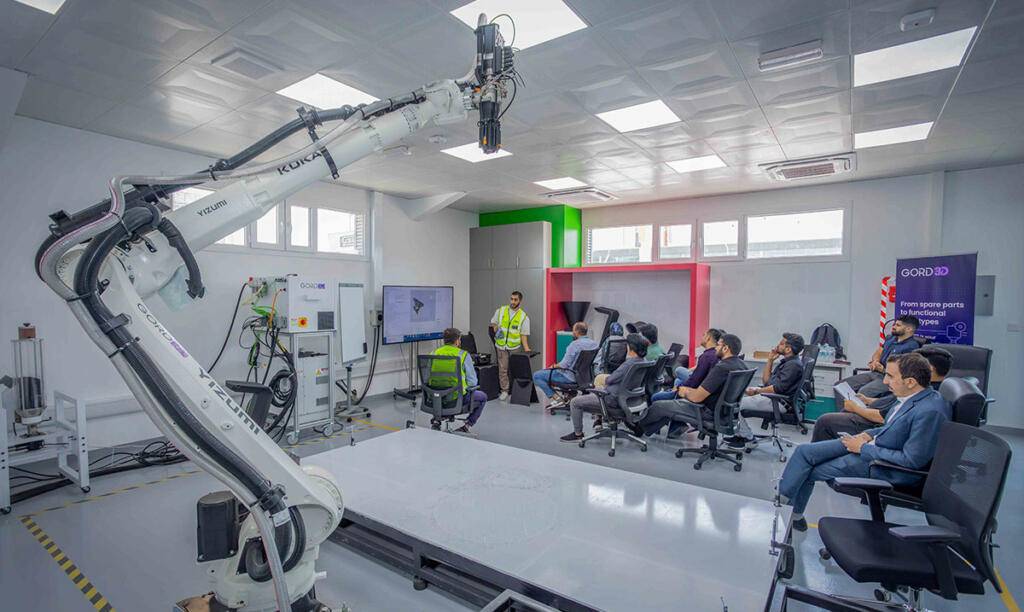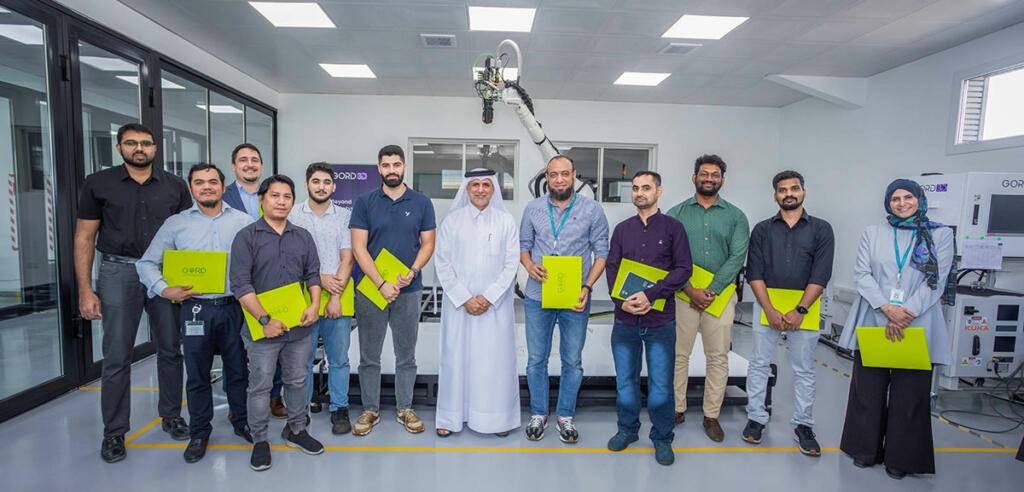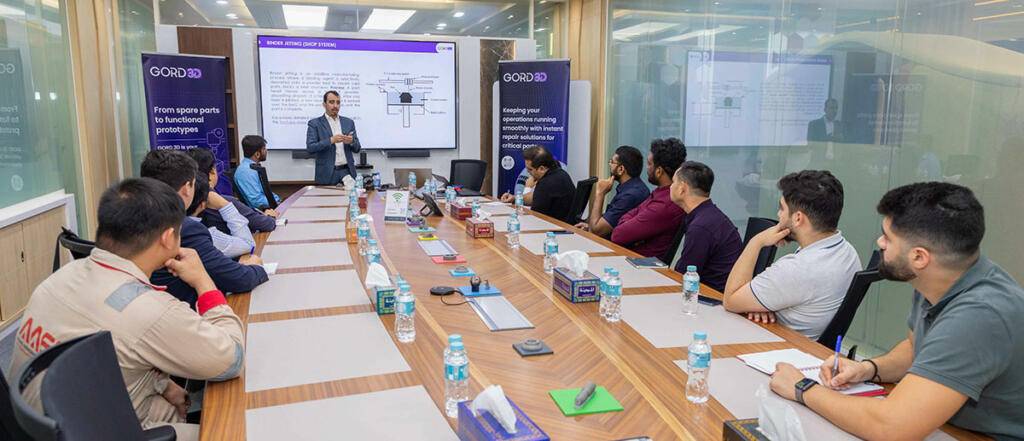The Gulf Organisation for Research & Development (GORD), in partnership with Qatar Development Bank (QDB), recently completed a two-day training workshop aimed at enhancing the skills of representatives from various Small and Medium Enterprises (SMEs). The workshop, centered on the rapidly growing field of additive manufacturing, was led by GORD 3D, GORD’s newly established Center of Excellence focused on advancing 3D printing technologies.
The knowledge sharing event, held at GORD headquarters and its research hub in Qatar Science & Technology Park (QSTP), was designed to provide attendees with a comprehensive understanding of 3D printing technologies, including their scope and potential applications in various industries. The workshop is part of a broader initiative aimed at encouraging local SMEs to adopt innovative technologies and sustainable practices. By leveraging the capabilities of 3D printing, businesses can reduce waste, lower production costs, and shorten product development cycles.

Dr. Yousef Alhorr, Founding Chairman of GORD, emphasized the significance of the training program, stating, “The adoption of cutting-edge technologies like 3D printing is crucial for the growth and sustainability of SMEs in Qatar. This training is not just about understanding the technology but also about exploring how it can be integrated into business models to drive innovation, reduce costs and environmental footprint, and create new market opportunities. By investing in such initiatives, we are empowering local businesses to become more competitive and resilient in a rapidly changing global economy.”
Dr. Hamad Salem Mejegheer, Executive Director of Advisory and Incubation at QDB, said, “At Qatar Development Bank, our unwavering commitment to fostering innovation is at the core of our mission to empower SMEs with the expertise essential for thriving in today’s dynamic economy. Our partnership with GORD exemplifies our dedication to embedding advanced technologies such as 3D printing into Qatar’s industrial ecosystem. We are focused on promoting the adoption and localization of these cutting-edge technologies, confident that such initiatives will enhance the competitive edge of SMEs and play a pivotal role in advancing Qatar’s sustainable development.”
This training represents the inaugural session in a forthcoming series of workshops designed to empower Qatar’s SMEs with the expertise required to excel with dynamic manufacturing solutions. Participants attending the training were representatives of SMEs supported by QDB. During the two-day workshop, these professionals gained insights into the technical aspects of 3D printing, exploring its advantages such as short lead times, the ability to handle complex designs, cost-effectiveness, and environmental sustainability, etc. The attendees were also offered a tour of GORD 3D Labs at QSTP to gain experiential knowledge about the latest 3D printers and technologies currently in use.
Looking ahead, GORD and QDB plan to host more training sessions on additive manufacturing to cover a broader range of sectors. Ultimately, the purpose of the workshop series is to serve as a catalyst for transformation towards a more sustainable and technologically advanced industrial sector in Qatar.

In an earlier article we covered how Research at Texas A&M University is advancing Additive Manufacturing in Qatar Additive Manufacturing (AM) is revolutionizing industries by enabling the creation of complex geometries and custom components that were previously unattainable through traditional manufacturing methods. At Texas A&M University at Qatar, our research teams are at the forefront of this technological advancement, leveraging state-of-the-art facilities and interdisciplinary expertise to push the boundaries of what’s possible in AM. Texas A&M at Qatar’s ISO 9001:2015 certified Rapid Manufacturing lab provides students, researchers, and engineers across disciplines with the capability to manufacture functional parts and prototypes with intricate geometries that would otherwise be challenging to produce using traditional methods.


